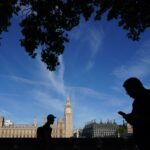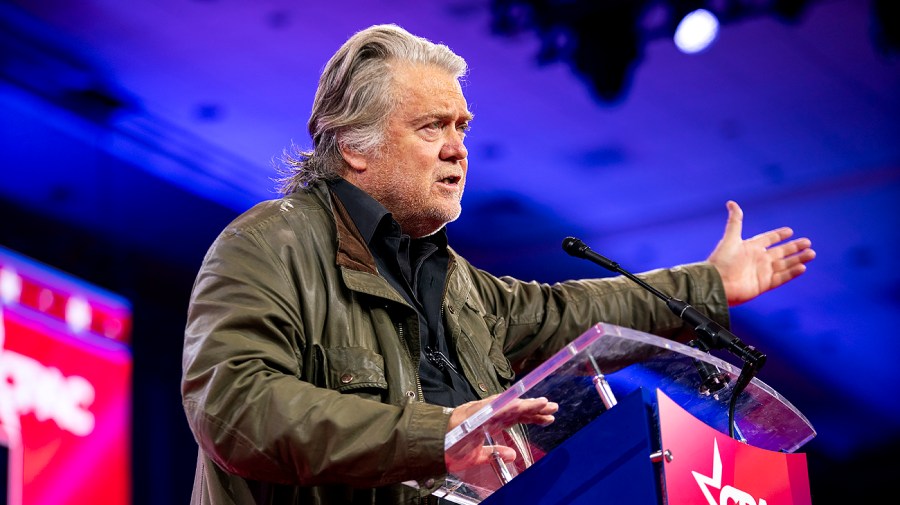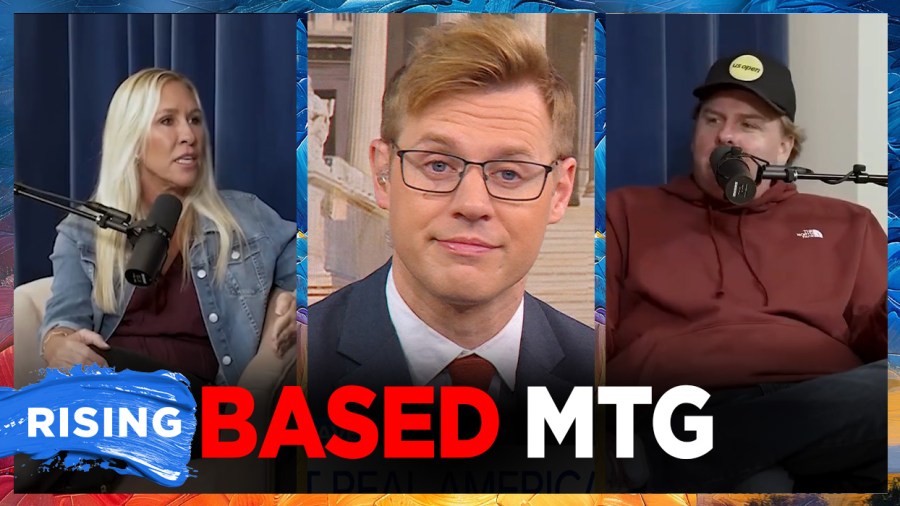Onetime Trump White House adviser Steve Bannon is asking the Supreme Court to toss his contempt of Congress conviction imposed after he failed to comply with the demands of the now-disbanded Jan. 6 committee.
Bannon served a four-month prison sentence for not appearing for a deposition ordered by the committee and refusing to turn over documents they subpoenaed.
He has finished serving his sentence, but Bannon’s appeal seeks to wipe the conviction from his record and heighten the standard for bringing future contempt cases.
“Political winds change, but the requirements for criminal prosecution should not—least of all when it comes to a statute fraught with implications for the separation of powers,” the petition reads.
The petition was submitted Friday but has not yet been publicly docketed. The Hill received a copy from Bannon’s lawyers.
The Supreme Court is set to consider taking up the appeal later this term, after the government has an opportunity to respond in writing.
It comes after the Supreme Court refused White House trade adviser Peter Navarro’s emergency bid last year to delay his prison sentence while he appeals his similar contempt conviction.
Bannon’s appeal largely revolves around his attorney’s advice to delay compliance with the Jan. 6 committee until executive privilege disputes were resolved.
To be guilty of contempt, the statute mandates Bannon must have “willfully” ignored the committee.
Bannon says he relied on his attorney and didn’t know his conduct was unlawful, so it wasn’t willful. But lower courts ruled the government only needed to prove the refusal to comply was intentional, regardless of why.
“That interpretation conflicts with 150 years of caselaw from this Court, is contrary to basic canons of construction, and will cause serious harm to the separation of powers,” Bannon’s lawyers wrote of the lower court rulings.
The petition also raises a second legal argument that questions the legitimacy of the Jan. 6 committee itself.
Bannon contends his subpoena wasn’t valid because the Jan. 6 panel’s makeup did not comply with the House resolution that created it. It specified the body must have 13 members with five chosen in consultation with the minority leader.
Then-Speaker Nancy Pelosi (D-Calif.) rejected some of then-Minority Leader Kevin McCarthy’s (R-Calif.) picks, spurring McCarthy to withdraw his remaining recommendations. The committee ultimately comprised seven Democrats and two Republicans, all picked by Pelosi.
The U.S. Court of Appeals for the D.C. Circuit ruled it was a mere procedural objection that Bannon forfeited by not raising it before the committee itself.














